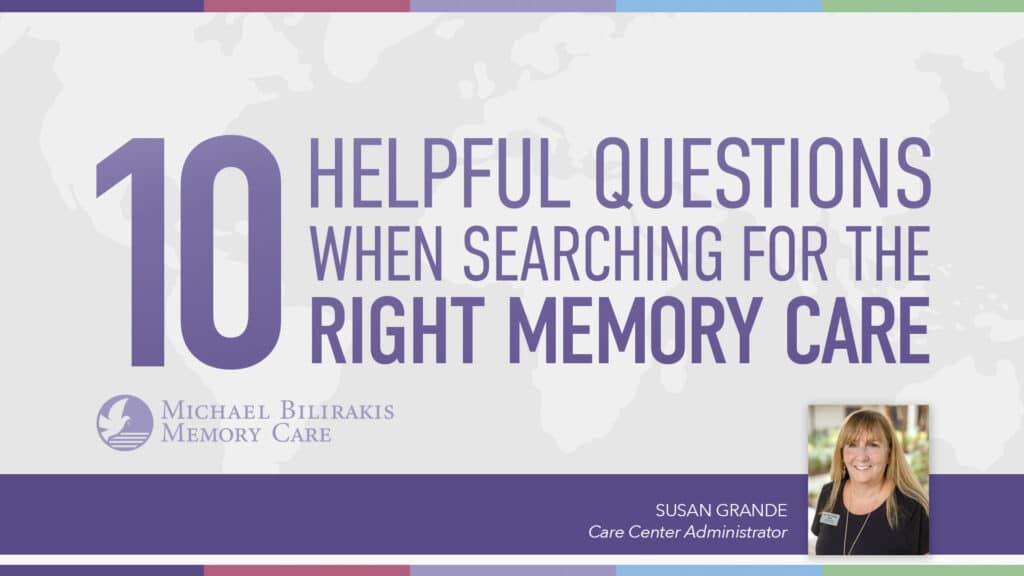By Susan Grande, Care Center Administrator
Susan has a BPS in Human Services from SUNY at Utica. She started her career in Long Term Care here at St. Mark Village in the early 1990’s as the Human Services Director, overseeing Life Enrichment and Social Services. Realizing she had a passion for working with Seniors, she studied for and received her Nursing Home Administrator’s license here. Susan worked as a Nursing Home Administrator for close to 20 years. She continued to be drawn to the not- for-profit arena, where she held the position of Executive Director at three different organizations. Her desire to provide the best quality of life to the people in the communities she served, led her to Dr. Bill Thomas of the Eden Alternative who she was able to hire as the Medical Director at one of her homes. Susan became an Eden Associate and it gave her some of the tools to help the culture in her organizations flourish. Most recently, Susan became a PAC Certified Independent Engagement Leader to educate herself on the most current and compassionate ways to interact with Residents who have cognitive impairments. In the Michael Bilirakis Memory Care and throughout the Village, she plans to educate Team Members, families, and friends, resulting in more positive meaningful relationships. Susan also has a life coaching and hypnotherapy practice.
Dementia, particularly of the Alzheimer’s type, is progressive, which unfortunately means the condition worsens over time. While the topic of memory care can feel overwhelming, it is important for families and friends to remember that their loved ones can still experience happiness and fulfillment.
Memory Care Communities, or Life Care Communities that include Memory Care, such as St. Mark Village, can provide everything a Resident needs to enhance their quality of life. However, specialized training, especially for Team Members who directly interact with memory impaired Residents on a daily basis is a necessity. A setting that focuses solely, 24/7, on dedicated compassionate care for those with unique challenges related to cognitive impairment may be exactly what your loved one needs to live their best life.
It can be quite difficult to navigate your options when choosing a Memory Care setting for your loved one. Each Community is different. So, here are some important questions to ask to gain the knowledge needed to make an informed choice.
- What Level of Care and Services are Provided?
The type of care and services provided are primary concerns. Be specific not only about daily challenges, but also what still brings comfort and pleasure. How, in detail, will the Community meet your loved one’s needs now and in the future? How will it provide the meaningful engagement that will help your loved one thrive? It is important to remember to look ahead when asking these questions. Again, these are progressive conditions and the care needed upon arrival will not always be the level of care required as your loved one ages.
- What is the Staff to Resident Ratio?
When working with Residents that need gentle, patient, deliberate, creative approaches, you want to ensure that the Team Member to Resident ratio is at a level that provides comfort, not concern. However, it is up to you as to what that magical number is, understand, and set your expectations. Visit more than once at different times of the day, and observe Team Members interacting with Residents.
- What are the Staff Qualifications and Training Required?
Training plays a vital part in the success of employees. However, when it comes to looking after those that are suffering from cognitive health issues it becomes even more so. When you bring a loved one into Memory Care, you want to do so with the knowledge that the Team Members are certified, educated, and prepared to deliver the level the care that is required.
- What are the Costs and Recurring Fees?
While you want to ensure your loved one gets the best care, analyzing the cost will in the long term be very beneficial, helping you plan, and leaving you feeling more in control. Understanding the costs and fees upfront is essential. What is included in the daily or monthly rate for example, and what is not. The last thing you want is to have to move to a different location simply because the costs were larger than you expected.
- Are the Rooms Private or Shared?
Some people may flourish in a shared room, finding comfort in another’s presence, and making a new friend, while others may fare better when given privacy. Communities should have different offerings and/or options to help your loved one adjust to a new setting. It is important to know what these are and feel comfortable that there is some flexibility before you complete the admissions process.
- Are Considerations for Dietary Requirements Made?
You should ask not only whether the Memory Care can accommodate a diet that is a preference, such as a vegetarian diet, but also are they equipped to provide certain physician ordered diets. Proper nutrition is paramount to keeping your loved one healthy and cognitive impairment almost always changes some facet of the “normal “dining experience. Does your loved one’s attention span affect their ability to finish a meal? Do they need their food cut in bite sized pieces? Observe the Residents and Team Members interacting in the dining room. Is there enough assistance available for proper nutrition and hydration?
- How is the Memory Care Facility Secured?
People in need of memory care are at risk for elopement. If they were to leave the Community on their own, unsupervised, there is a chance they may not be able to find their way back. Security is therefore paramount and depending on the severity of the Resident’s memory impairment, the answer to this question can be of the utmost importance.
- Do you Provide any Nursing Services?
Memory care is one thing, but underlying health conditions cannot be forgotten – heart disease, blood pressure issues, diabetes, and more. These also require treatment. When choosing a Memory Care, it is important to ask about the credentials of the Team Members that will be monitoring these complex, chronic issues.
- How Does the Facility Control Family Communications?
Communication is crucial. When talking in terms of Resident care it increases exponentially. This applies to both general, and in case of emergency, contact. Before you finish the admissions process it is best to have a clear and documented communication strategy, so that everybody is on the same page.
- What Activities are Offered?
A rich and varied Life Enrichment plan can boost mood and improve quality of life, as well as reduce agitation and anger. Meaningful engagement provides Residents and Team members with fun, stimulating, quality time together. Residents can use their energy in a positive way. Don’t forget to ask for a copy of the activities calendar. Keeping Residents engaged and involved is so important. There are a number of different means and effective options to help Residents feel they have purpose. Asking about engagement at the start of the application process will enable you to make the best decision for your loved one.
For thirty years, the Michael Bilirakis Memory Care at St. Mark Village has been and continues to be dedicated to enriching the lives of the Residents we serve by creating an environment that fulfills their every need – body, mind, and spirit. Our approach to memory care utilizes the Positive Approach to Care Model, empowering Residents to see and utilize their current skills and abilities. We recognize each individual for who they are, and build upon their past history to allow them to continue to contribute to the community. Each new day, compassionate, experienced Team Members provide gentle guidance to our Residents with dementia, as well as reassuring support for their families and friends.
We know finding the right Memory Care for your loved one takes careful thought. St. Mark Village is here to help. We are always ready to take you on a tour of our Community and talk you through one the most difficult decisions of your life. For more information, please visit www.StMarkVillage.org/MemoryCare, call us at (727) 785-2580, or email us at MemoryCare@StMarkVillage.org.


